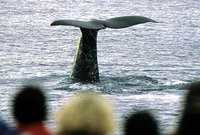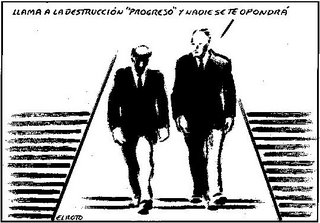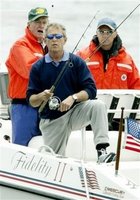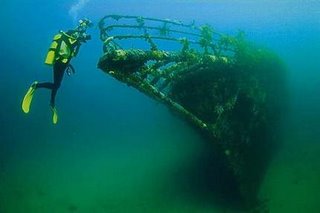
I read that the resumption of commercial whaling in Iceland is already having a boomerang effect on the country's tourist industry: whalewatching operators (whose business is to bring tourists to encounter and enjoy whales alive at sea) are complaining that the decision is hurting them already.
Hardly surprising.
In the three-part series that I wrote three years ago on Iceland, Greenpeace and Whales, where I described the first voyage of the Greenpeace ship Rainbow Warrior in which I took part in 1978, I explained how in those pioneering times already we proposed the substitution of whaling by whalewatching:
"On first visiting Iceland we proposed that the whaling industry could be replaced by a whale-watching industry for tourists. Living whales can bring as much money, or more, and for longer, than dead whales, we said in a genuine attempt to change the mind-set. Like all visionary and ground-breaking thoughts, it was a laughable one at the time, and we were treated like weirdos: the weather in Iceland was not suited to taking tourists out to sea, they said; this was not the Canary Islands or the Caribbean. So I was pleasantly surprised the last time that I visited Reykjavik, in 1998, to see that there was a flourishing whale watching industry in the country. On hotel reception shelves, the old post cards of the Hvalur whaling station were replaced by post cards showing whale watchers taking pictures of living whales blowing on the surface of the sea. Whereas in the 1970s, tour operators would take visitors to the whaling station to photograph themselves and their children beside dead whales, they were now taking them to photograph themselves with living whales. Ideas which are ahead of their time will always be laughed at".
Whalewatching which has now boomed all over the world, including in the High North, is a new sustainable reality which the Icelandic and other governments should take notice of more seriously. Whalewatching operators have a right to claim that whales belong to them at least as much as to the whalers.
When two different activities compete for the same resource, the responsibility of governments is to protect the interests of the one that brings more shared benefits to the whole community. And the least damage.
The whaling industry has been claiming that the moratorium on commercial whaling undermines the 1946 International Convention for the Regulation of Whaling (ICRW), the founding treaty of the International Whaling Commission (IWC). But if you read the Convention carefully you will see that it seeks the conservation, development and optimum utilization of the whale resources (Article V2). Of course, back in 1946 whalewatching was not an option. But today can't it be argued that whalewatching represents the optimum utlization of the whale resources?







